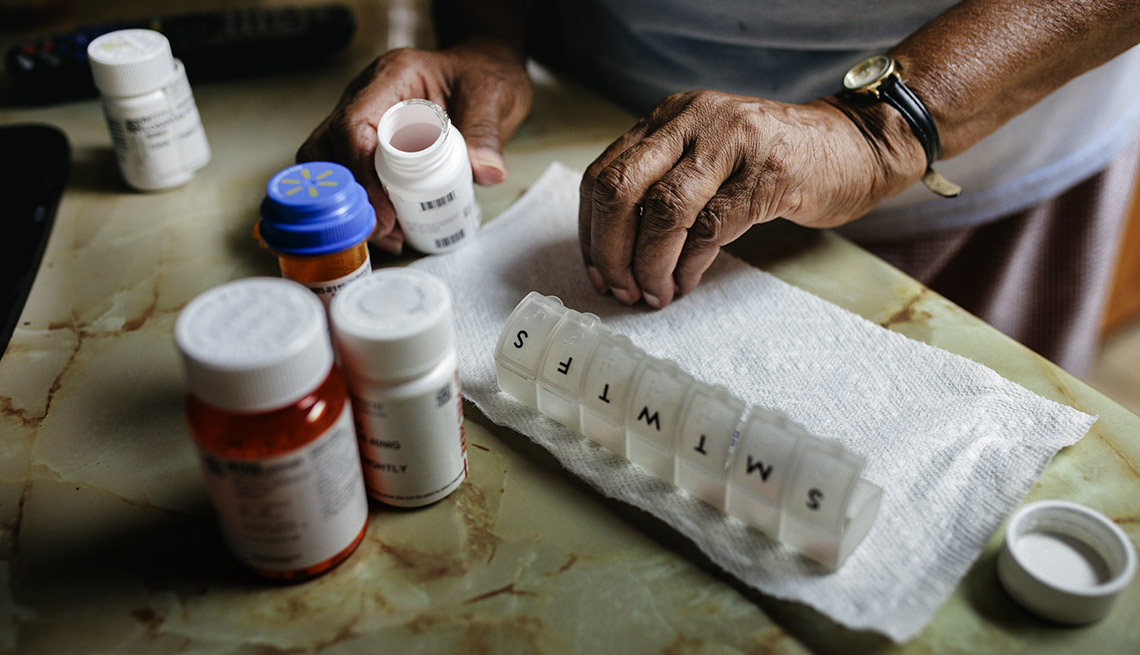AARP Hearing Center
Medicines can improve our lives — and save them — by regulating blood pressure, curing infections and calming restless minds and aching joints. But sometimes, too much of a good thing isn't very good at all.
More than 40 percent of older Americans regularly take five or more prescription drugs, and nearly 20 percent take 10 or more, according to a 2020 report from the nonpartisan think tank Lown Institute. When over-the-counter medicines and supplements are factored in, the share of older adults popping five or more pills — a practice known as polypharmacy — shoots up to 67 percent.
"People can get into this situation quite easily,” says Lon Schneider, M.D., a geriatric psychiatrist and professor of psychiatry, neurology and gerontology at the University of Southern California, Los Angeles.
For example, a primary care physician may treat a patient for high blood pressure with medication that can result in more frequent urination. At the same time, that patient may visit a urologist for incontinence “and get a medication that can further affect blood pressure and cognition, as well,” Schneider says. “They go to a gastroenterologist because of indigestion and get something for that, and then the primary care [doctor] — without knowing any of this — may give them something for anxiety and depression and something else for sleep. It adds up very quickly."
And this medication overload can have serious consequences: Every day, 750 older adults are hospitalized for side effects from medication, the Lown Institute report states. If current trends continue, the problem could result in more than 4.5 million hospitalizations and 150,000 premature deaths among older adults over the next decade.
With increased age comes increased risk
The incidence of chronic disease increases with age. Nearly 80 percent of adults 55 and older have at least one chronic condition, data from the Centers for Disease and Prevention (CDC) shows; almost half have two or more. And hand in hand with these conditions come medications to manage them.
The problem is that as we age, our bodies are less able to handle some drugs. “Medications that are completely fine for people in their 20s and 40s may not be fine for people over 60,” says Jeffrey Keller, director of the Institute for Dementia Research and Prevention in Baton Rouge, Louisiana.
One reason: Aging alters the body's capacity to absorb, metabolize and excrete drugs, Schneider says. “So you're often getting relatively more of that drug than you may need, especially when you reach 65 to 70. The dose you took earlier in your life with no problem is now actually an increased dose."
What's more, clinical trials that test the safety of approved drugs “are conducted in a way that minimizes potential interactions with other medications,” Keller says. “However, in real life, there are very real interactions for older people that were not observed in the trials."































































